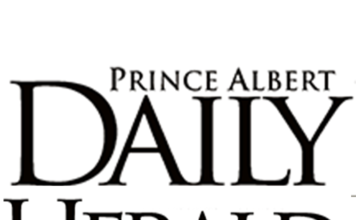A project looking to break down barriers faced by local First Nations and Métis people accessing cancer care is asking for public input.
The Knowledge to Change Initiative is in the second of its four years. Its ultimate goal is to identify systemic barriers Indigenous people face when accessing cancer care and working to formally present and find solutions to those barriers. The project is a partnership between the Prince Albert Métis Women’s Association and the Canadian Partnership Against Cancer.
“Our commitment is to identify and assess the systemic barriers negatively impacting Indigenous peoples affected by Cancer in Prince Albert and area,” the project says in its official description.
“Data, information and reports on these barriers will be made available to Saskatchewan Cancer Agency, as well as other Provincial, Federal, and Indigenous government and health organizations—with the intent of spearheading additional surveillance and/or solutions to systemic barriers identified.”
Markus Winterberger joined the project in the fall. He’s looking to spread the word about surveys designed to gather feedback with people with lived experience accessing cancer care in Prince Albert.
“The project is about overcoming barriers, specifically systemic barriers, but also developing a process, a protocol that organizations can apply to find barriers, document them and then communicate them to relevant decision-makers so that people who need to know about those things can know,” he said.
That way, WInterberger explained, change can take place.
The project began by asking the community what questions it should be asking. It then went and reviewed literature to begin to identify what barriers are to accessing cancer care.
‘The idea is that this is going to be community-informed,” Winterberger said.
“It’s part of the Canadian Cancer Society and the Partnership Against Cancer. They want to ensure that the local voice is heard and the local voice will inform action as opposed to coming in and saying ‘this is what you need to do.’”
So far, some barriers that have come up include transportation, past trauma, and racism.
“The solution to that is not easy,” he said.
“It’s very complex and is connected to truth and reconciliation. It’s connected to digesting history and creating awareness of what happened. Hopefully, that will lead to more (Indigenous) people being employed in our health services and people feeling more comfortable accessing those.”
While there is information out there about what is happening, the importance is in presenting that information in a formal way to decision-makers, Wintergerger said.
“We are building a protocol to identify barriers, communicate them and have them solved,” he said.
“If we build a formalized process that will inform the decision-makers what the barriers are, that will be a good foundation for seeing some solutions and seeing some movement towards solutions. I think (that way) voices can be made louder and pressure on decision-makers can be increased.”
To do that though, Winterberger said, the project needs community input.
“Please complete the survey. Please get involved,” he said.
“Based on those inputs, we will further build the relationship with the interested stakeholders and then engage them to develop a protocol to identify issues, and to communicate them and have them addressed.”
The professional knowledge survey can be found at https://www.surveymonkey.com/r/QCPXHBC
While the personal knowledge cancer survey is located at https://www.surveymonkey.com/r/W3ZXMTK


